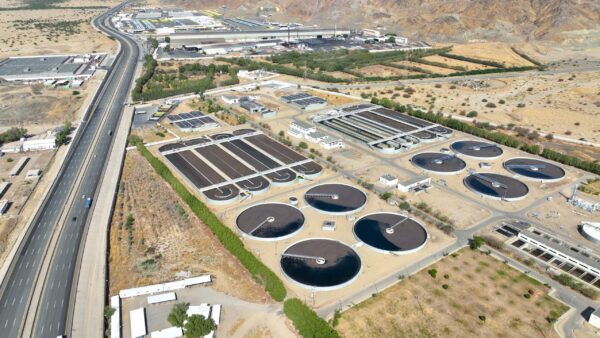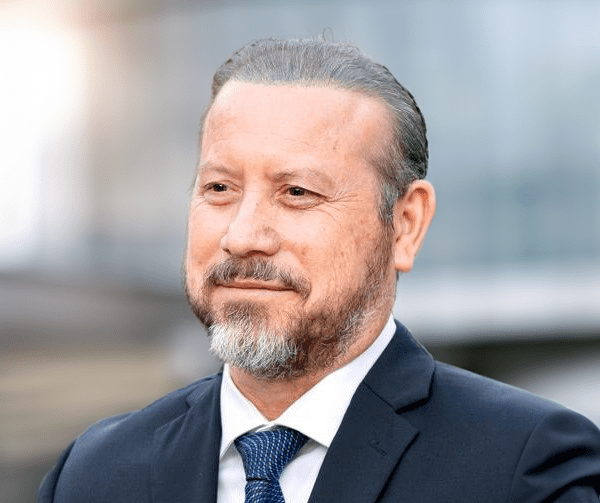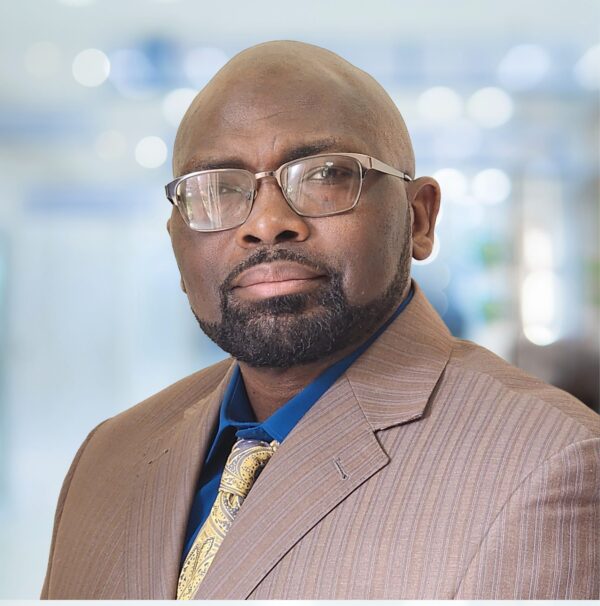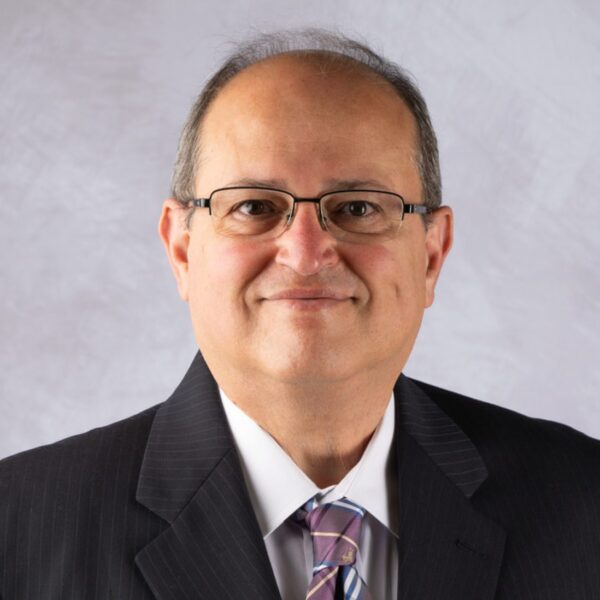

This time last year, Luis Lugo Jr. had just re-joined Hill as a Senior Vice President after a four-year stint at another firm. Within five months, Lugo was named head of Hill’s Southeast Region, and moved from New York to Miami, a city that he and his family love and consider home. Now, seven months later, Lugo is again on the move. On February 1, he added a new job to his tool belt: Senior Vice President and Regional Manager for the Project Management Group (Southeast/Caribbean/Latin America).
In this position, Lugo will be responsible for all project management operations in Mexico and Central and South America. Notably, Lugo will continue to helm Hill’s Southeast Region, which includes the southeastern United States, Puerto Rico and the Caribbean. In all, he will oversee about 400 professionals throughout the two regions: 275 employees in Brazil, based in Sao Paolo and Rio de Janeiro, 75 in Mexico City, and 40 in Florida.
Lugo will continue to be based in Hill’s Miami office. “There are a lot of international companies that have established their Latin American operations in Miami. Miami is a major hub, both geographically and in terms of air transportation to and from Latin America,” Lugo explained. “And, many Latin American companies that are likewise trying to establish business relationships with U.S. firms or investors are coming right here to South Florida.”
Not surprisingly, Lugo already has big plans for the Latin American region, which encompasses more than 20 countries on two continents—a geography of more than seven million square miles.
The region is incredibly diverse, Lugo said. “Latin America includes several different counties that have different languages, cultures, laws, and ways of doing business. In all, Latin America has 617 million people, who speak languages that include Spanish, Portuguese, French, English and Dutch,” he said.
Brazil is Latin America’s largest and most populated country, with 200 million people. “In fact, the two of the most populated cities in the world are in Latin America: Sao Paulo and Mexico City,” Lugo said.
Brazil and Mexico have the strongest economies and generate about 80 percent of the region’s gross domestic product, Lugo added. Hill already has made strategic inroads in Brazil and Mexico, taking advantages of the countries’ emergence as world markets.
“With our presence in Brazil and Mexico, we’re located in the exact places we need to be, but there are emerging economies that we also are keeping a close eye on, including Colombia,” he said.
Lugo was looking forward to meeting with his executives from Latin America to assess how projections made just before the close of 2015 have panned out. He plans to institute quarterly meetings with the region’s leadership to set both short- and long-term goals. “Meeting at least quarterly will allow us to better adjust to changes and change course as needed,” he explained.
“When we look at Latin America, in terms of operations and business development, there is no ‘one size fits all.’ It’s not that simple,” Lugo added. “We have to look at the region as a whole, yes, but also in a million different ways.”
In terms of his management style, Lugo plans to put to work the same philosophies that have made him a successful manager of both people and projects in the U.S. “I’m trying to build an approach that gives people in these key positions the responsibility and the authority to do their jobs. I’m trying to motivate and empower them, and to create one team,” he said.
It’s a challenge Lugo feels he’s meant for. After retiring from a 20-year career in the U.S. Army, where, in his last assignment, he commanded a company of recruiters in South Florida, Lugo began working in the construction industry, with positions in operations, claims consulting, project management and business development. He joined Hill International, a global construction management and claims consulting firm, in 2011. Working from Hill’s bustling New York City office as vice president of business development, Lugo used his expertise and contacts to grow Hill’s business there. His work got the attention of a small, Manhattan-based program and project management firm for which he had previously worked, which hired him to be its President and Chief Operating Officer. While there, Lugo helped to grow the business by more than 25 percent annually, an achievement he’s proud of. He left the firm in 2014 to rejoin Hill, where he worked to grow Hill’s claims group in New York City. Last spring, he was asked to consider helming the Southeastern Region. He was asked to add Latin America to his job description early this year.
Lugo feels the biggest asset he brings to the job is his leadership skills, honed from years in the Army and in the private sector, managing complex construction projects and staffs all over the country. “Leadership is the single most important thing you can bring to any job. You can find twenty people who are technically proficient, that are experts at what they do, who can design an amazing building or who can figure out some of the biggest challenges inherent in engineering, architecture or construction. But, to run an office, a region or a project, you’ve got to have strong leadership skills.
“Construction, by its very nature, is chaotic, and is always changing. One of the keys to success in this industry is precisely that–strong leadership: understanding the strengths and weaknesses of your individual staff and teams and helping them to improve where needed, and assigning them to positions in which they’ll be successful is key and necessary to achieving overall success,” Lugo said.
Lugo knows it won’t be easy. “You’ve got one [corporate] culture in Mexico, another in Brazil and another, completely different [corporate] culture in the U.S. I’m trying to meld those cultures together, taking what’s best about each and creating one team,” he said. To help with this, he plans to hold an “integration/team building week, where all of the region’s leaders are in one place and we work on a common, shared vision, where we talk about expectations, goals and objectives and ways to succeed. It’s all about answering the question, ‘how can we work together?’
“Ultimately, I want to create an environment where people are happy to come to work every day,” Lugo added, “where people are proud of what they’re doing and their part in the ‘jigsaw puzzle.’ Those are concerns no matter where you are in the world.”
Lugo also has a clear sense of the Latin American region’s unique challenges. “There’s been a downward trend on the largest economy in the region. They’re going through some very hard times, but I believe that will correct itself over time and that Brazil will come back very strong in the future. We need to figure out how to grab the opportunities in Brazil and simultaneously use our talents and resources outside of Brazil, turning the Brazil operation into a company that can operate outside of Brazil as well,” he said. “If we sit in Brazil with our arms crossed we’re going to lose revenue and we’re going to shrink. If we know that Brazil’s economy is going to de-escalate over the next two to three years, we need to find ways to continue to grow there despite that.
“I don’t think there is a shortage of opportunity, no matter what’s happening in the region,” Lugo continued. “We need to be able to adapt to the changes there, maintain what we have and continue to grow.”
On U.S. soil, Lugo is taking steps to maximize Florida’s burgeoning opportunities. “There’s a lot of construction in Florida now. Florida is coming out of a big recession. The state really took a hit in many areas. Florida’s economy is highly dependent on tourism and, when the recession hit, people stopped traveling. Also, the sub-prime disaster really affected Florida, causing a lot of foreclosures which also impacted the local economy. People were really hurting here.” he said. “But, over the past twelve to eighteen months, things have really started to improve. Eighteen months ago, you looked at the Miami skyline and couldn’t see a single crane. Now, you see several, which is exciting. The city is growing and building.”
Growth isn’t confined to Miami, Lugo said. “Orlando, Fort Lauderdale, Tampa, Jacksonville all have projects in the works,” with a distinct uptick in commercial construction, he explained. Notably, Florida also is embarking on historic transit work that will traverse the state. “Rapid transit also is picking up steam. For example, Florida is building a rapid transit system that will travel from Miami to Cocoa Beach, and then over to Orlando.”
Although some parts of the Caribbean still are struggling to regain their economic footing following the recession, others are growing, with big plans for commercial, transportation and infrastructure projects. “St. Lucia and Trinidad and Tobago are just two of the countries in the Caribbean that we’re looking at very closely,” Lugo said. Santo Domingo and Cuba also are poised for future growth, Lugo added.
“Cuba’s renewed relationship with the U.S. could, over time, start yielding opportunities. We expect money to start flowing into Cuba in the near future, as the World Bank and other [banking and investment] entities around the world start funding projects there,” he said.
Lugo also is optimistic about Puerto Rico’s long-term health. While the U.S. commonwealth now is struggling under the weight of a $78 billion dollar debt and a chilly economic climate, Lugo expects sunnier days ahead for Puerto Rico and its people. Recent Wall Street investment in shuttered resorts along the island’s gold coast has caught the attention of investors worldwide, which could soon come aboard with cash of their own.
Like Cuba, opportunities for Hill in Puerto Rico may take time, but Lugo is willing to wait. In the interim, Lugo plans to get to know the unique governments, characteristic and cultures of each of the Caribbean islands and position Hill in order to be ready when the time is right. “The Caribbean is a cluster of islands, but each island is different. Each is its own different world, with their own governments and politics, their own business climates, their own languages, and their own cultures,” Lugo said. “Like in Latin America, we can’t pursue work there using the same business development strategy for all of them. Before we can intelligently pursue work there, we need to learn as much as we can about each island and how we best can assist them in delivering their capital projects.”
The two regions’ diversity is one of the things that he likes most about the job. “The diversity of all of these countries is appealing to me. I enjoy the fact that we have the opportunity to work in 20 countries on some really challenging and interesting projects,” he said.
Diversity is one of the reasons he and his wife love living in Miami. Lugo has lived and worked in such disparate locations as California, Texas, Arkansas, Oklahoma, Alabama, Georgia, and New Jersey, among others, No place feels as much like home as Miami, where he and his family first lived when he was a young father and Army commander.
“My kids were small and they went to school here. They went to elementary middle and high school here and my older son, Alex, started college here,” he said. His sons, Alexander and Maximilian, are grown now, with their own homes and families. “Now, my wife and I have come back to a place we love, and we’re settling in and enjoying all that Miami and the region have to offer.”
Ticking off statistics and brimming with enthusiasm, Lugo already is immersing himself into his newest region.
“I’m just happy about the opportunity. Taking the job was a big decision for me, in terms of the responsibility, the geography, and the challenges. It’s a big job,” Lugo said. “Yes, it’s got its challenges, and I think the challenges will continue. But, I’m happy to take them on, and I’m anxious to see how it all turns out.”
by Tricia M. McCunney
Share

June 23, 2025 | Articles
Jeffrey Hurley Joins Hill’s Northern California Rail Practice

June 23, 2025 | Articles
Ready, Set, Grow: First VP Chad Koelling Takes Charge of Hill’s Mountain West Region

June 8, 2025 | Articles
PMO in Saudi Arabia: The Holistic Approach to Realizing a National Mega-Portfolio

June 1, 2025 | Articles

May 26, 2025 | Articles

May 12, 2025 | Articles
Keeping Your Water/Wastewater Programs Flowing with Public Relations

April 27, 2025 | Articles
Oiling the Machine: Steps to Successful Permitting on Infrastructure Megaprojects

April 20, 2025 | Articles
Sustainable Scaling: Solutions for Managing Risk on Europe’s Data Center Projects